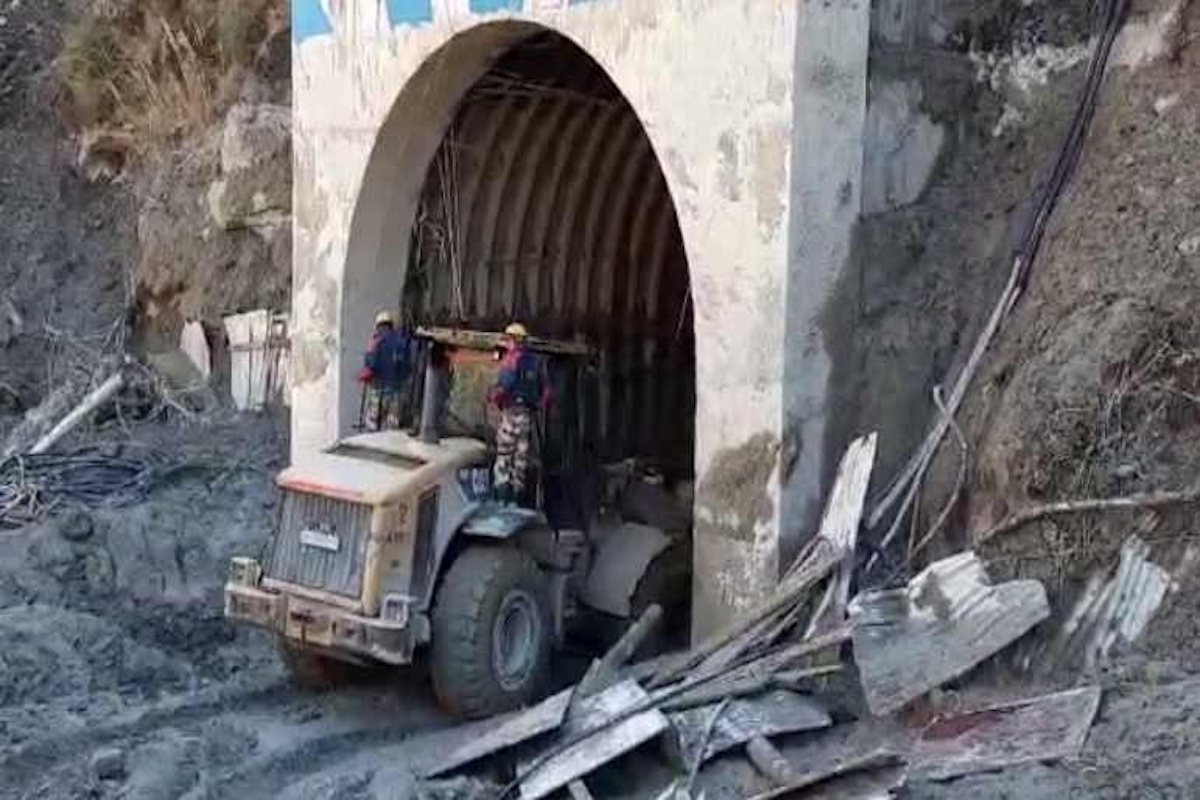Urvashi Rautela lauds PM Modi’s call to promote Uttarakhand as a destination for film shoots
Actress Urvashi Rautela reacted to Prime Minister Narendra Modi's statement regarding promoting Uttarakhand as a destination for film shooting.
According to the Indian metrological department, the Bureau of Indian Standards categorises Uttarakhand as a V seismic zone, the most active zone. The Indian plate, a part of the Indo-Australian plate, colliding with the Eurasian plate, has created several fault lines, making the region earthquake prone.
IANS | New Delhi | February 9, 2021 7:35 pm

Can Uttarakhand afford big dams? (Indian Narrative) (Picture: IANS)
The latest tragedy in Uttarakhand resulting in around 170 people missing definitely requires introspection on the development of the hill State. The damage of four hydropower stations, including the NTPC-owned Tapovan Vishnugad, the private project of Rishi Ganga, Pipal Koti of state-owned THDC, and Jaypee Groups Vishnuprayag has brought construction of big dams into sharp focus.
Uttarakhand’s main source of development is hydel power. The potential of the former is to a tune of 20236 MW. Highlighting this, a World Bank report has termed it as the state’s most important strategic assets. Obviously, the State and its residents, deem it fit to tap this potential not just for their betterment but also for the larger good of the nation as they cater to energy needs of residences and industries in other States and mega cities.
Advertisement
But given its rather fragile ecology, are big dams in Uttarakhand sustainable?
Advertisement
According to the Indian metrological department, the Bureau of Indian Standards categorises Uttarakhand as a V seismic zone, the most active zone. The Indian plate, a part of the Indo-Australian plate, colliding with the Eurasian plate, has created several fault lines, making the region earthquake prone.
That said, new technology is being consistently developed to overcome this hazard. A position paper by the International Water Power & Dam Construction, states that “technology is available for building dams and appurtenant structures that can safely resist the effects of strong ground shaking. Storage dams that have been designed properly to resist static loads prove to also have significant inherent resistance to earthquake action. Many small storage dams have suffered damage during strong earthquakes. However, no large dams have failed due to earthquake shaking”.
Yet, the paper adds that “there are still uncertainties about the behaviour of dams under very strong ground shaking, and every effort should be made to collect, analyse and interpret field observations of dam performance during earthquakes”.
Seized of this danger, the government’s Uttarakhand Vision 2030, is eyeing green power for the State. The vision has set broad goalposts of meeting 15 per cent energy demand from renewable sources instead of present 3.2 per cent and importantly save 25 per cent energy consumption to meet Government of India’s commitment to meet 40 per cent of energy requirements from renewable energy.
For the former, the micro-hydel, solar, co-gen, biomass will be tapped. To meet the second target, there will be replacement of CFLs and incandescent lamps with LED bulbs, switchover to energy-efficient devices, installing of solar energy heating systems in government offices, schools, colleges, hostels, housing complexes, hotels and hospitals and industries requiring hot water for processing; and implementation of energy conservation building codes among others.
The way forward for Uttarakhand is Small Hydro Power (SHP) projects. Projects up to 25 MW station capacities are categorised as SHP, and these provide clean energy. Besides requiring minimal submergence, rehabilitation and minimal impact to environment they accrue other advantages like promoting local industries in remote areas and assisting self-employment.
The region with several rivers and canals spells tremendous potential which is enhanced by the availability of ice fed and rain fed rivers and natural incline in the state. SHPs can play a critical role in national energy scenario and, in particular, for remote and inaccessible areas. For example, the remote area of Badrinath, power supply is through an SHP.
The state needs to take a close at sustainable livelihoods aspect too, to enhance social and human development which is equitable while conserving natural resources and environment. The emphasis will need to move to horticulture, sustainable tourism and opting for MSME. This coupled with SHP and information technology will spur growth.
Advertisement
Actress Urvashi Rautela reacted to Prime Minister Narendra Modi's statement regarding promoting Uttarakhand as a destination for film shooting.
Prime Minister Narendra Modi on Thursday reiterated his appeal to the people of the country to "Wed in India" and encouraged prioritizing Uttarakhand as a destination for winter weddings.
Prime Minister Narendra Modi arrived in Uttarakhand on Thursday and started his visit with religious rituals followed by flagging off key tourism initiatives. His visit is aimed to promote religious tourism and boost the local economy in the state.
Advertisement
